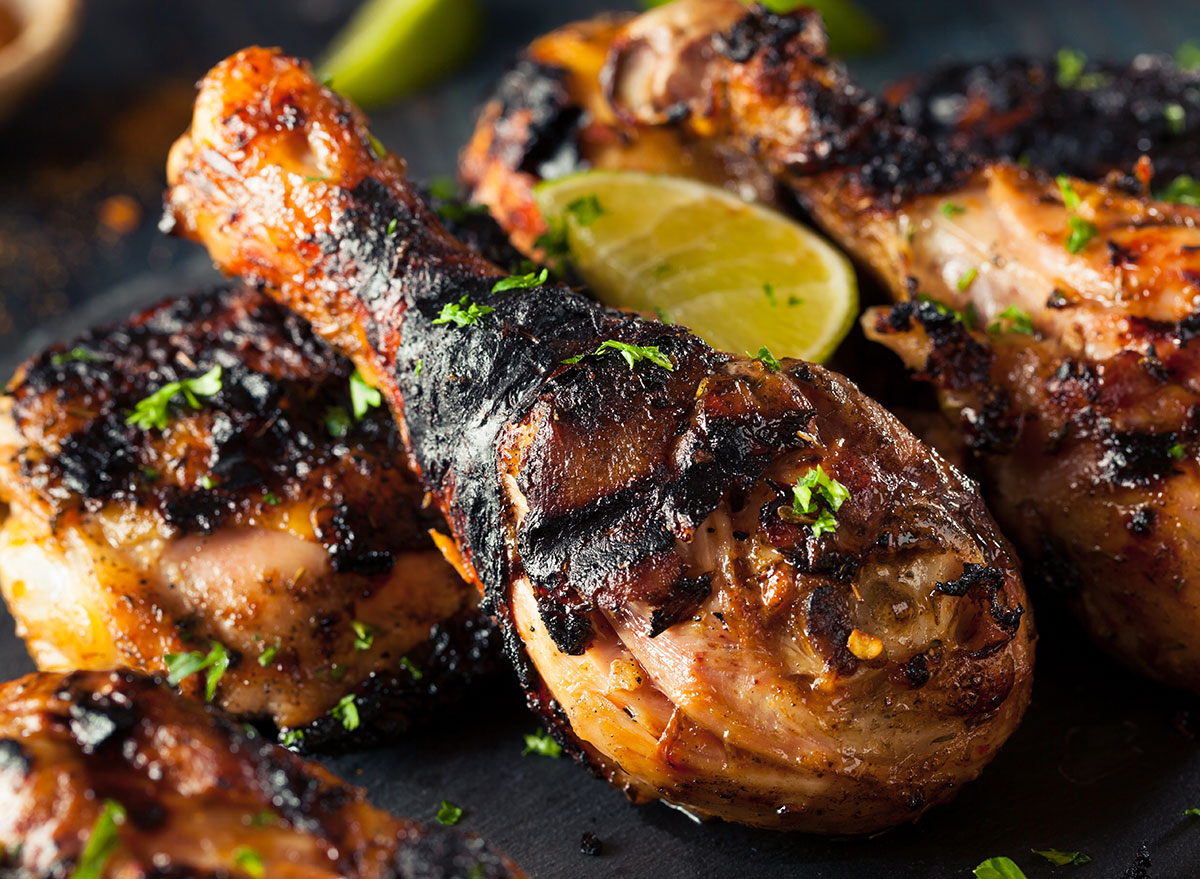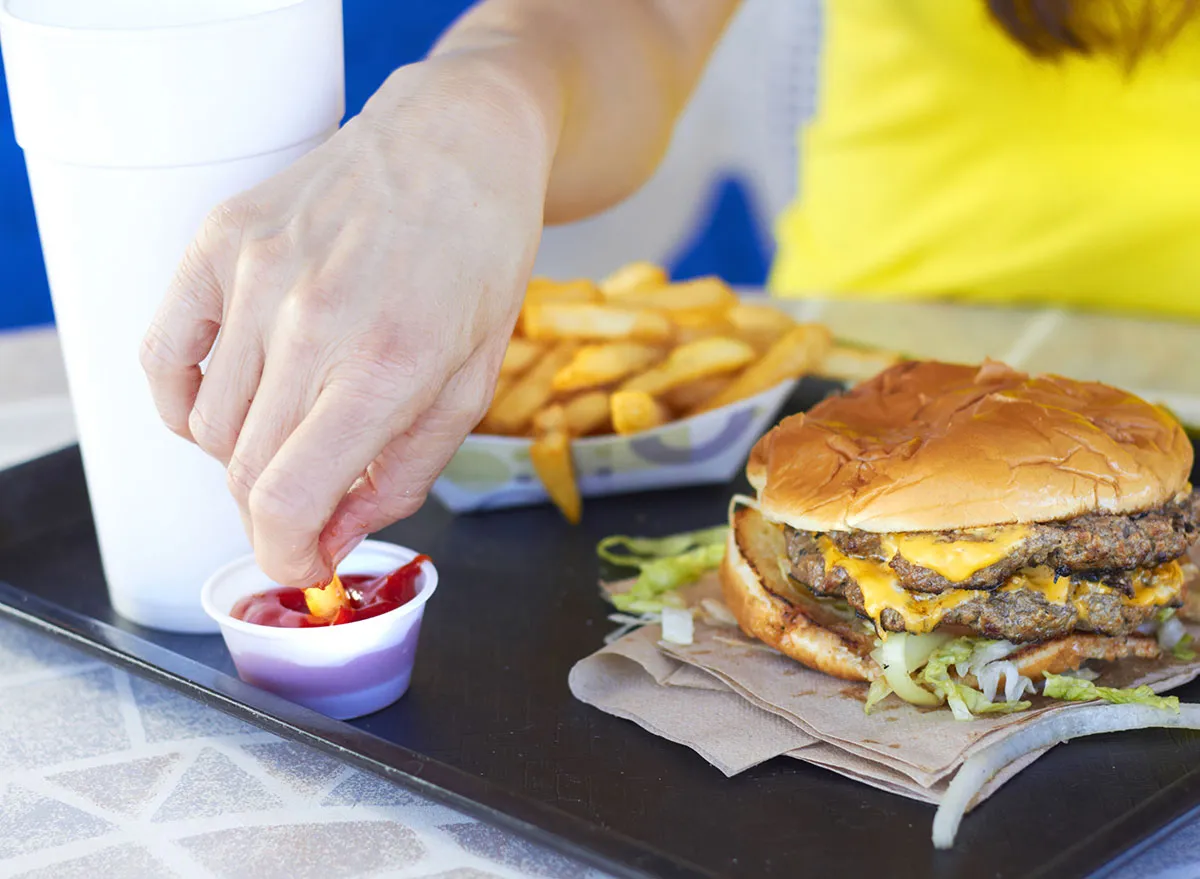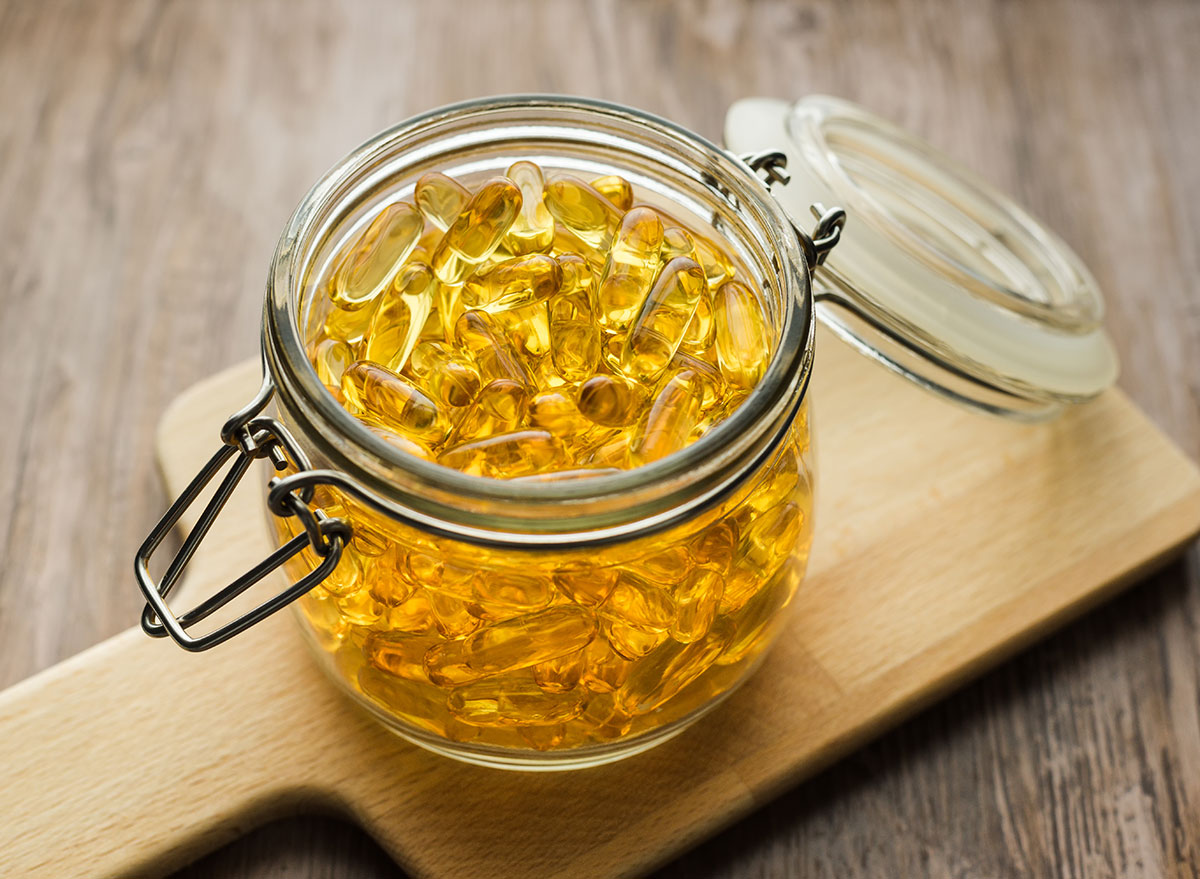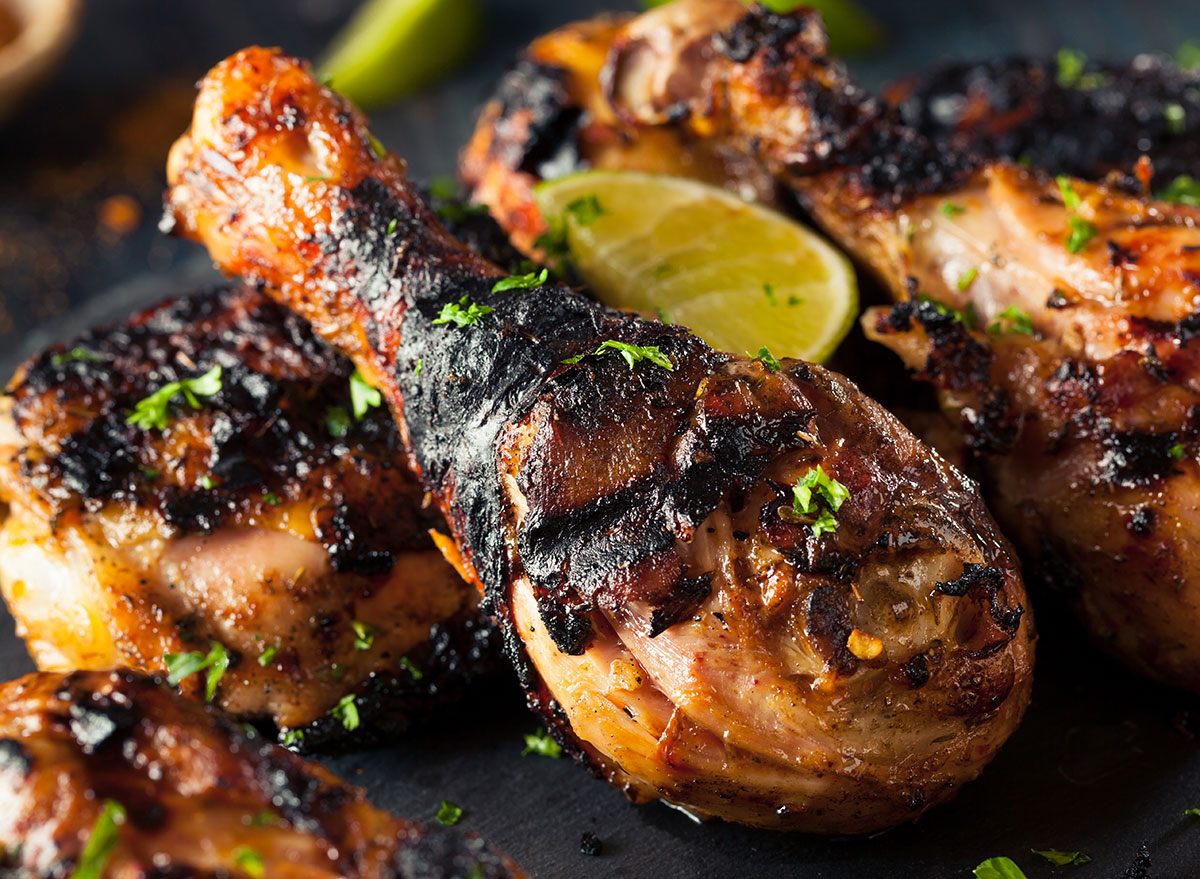Popular Foods Wrecking Your Immune System, Says Dietitian

A global pandemic has brought immune health to the forefront of conversations. Thankfully, immune health can be majorly influenced by lifestyle choices. What we eat, how we move, and how we feel all impact our immune system.
The benefit of making daily healthy habit changes is clear: we have power over our immune health and can impact it through diet and lifestyle choices.
Consider limiting the following food choices, and opting for healthier swaps! Then, be sure to check out our list of The 7 Healthiest Foods to Eat Right Now.
Soda

High fructose corn syrup in the form of soda has been shown to increase inflammatory markers specifically in the context of a high-calorie diet.
CRP, a common lab value that assesses systemic inflammation, was found to be elevated in the soda-drinking group in this study.
Further, drinking your calories makes it even easier to over-consume calories—thus promoting inflammation.
“Too much processed sugar may impact immunity by increasing markers of inflammation in the body,” says Lisa Andrews, MEd, RD, LD Owner of Sound Bites Nutrition. “Go easy on candy, sugar-sweetened beverages, and desserts high in added sugar.”
Alcohol

Alcohol is known for being disruptive to our immune system. Alcohol is treated as a toxin in the body and takes significant resources to process and remove from our system. It’s also well-known for decreasing our quality of sleep and thus, impacting our ability to fight colds and viruses the following day.
“Excessive alcohol consumption can disrupt the immune system and impair the body’s ability to defend against infection,” says Joan Salge Blake EdD, RDN, FAND, professor Boston University and host of nutrition and health podcast, Spot On! “Alcohol can also impair the gut, altering the gut microbiome, and the function of the immune system.”
Consider other Popular Drinks That Increase Inflammation, Says Science.
Fast Food

Generally, western civilizations get a bad rep for their quality of food. In fact, researchers observed systemic inflammation in mice when fed a standard western diet.
One of the hallmarks of western culture is fast food. The combination of fried foods, refined flours, and added sugars contribute to high-calorie diets that wreak havoc on our immune system.
Cheryl Mussatto MS, RD, LD, author of The Nourished Brain, unpacks this study: “A German study found that one too many fast-food meals may cause the immune system to act as if it’s responding to bacterial infections that may accelerate the development of arteriosclerosis and diabetes.”
“One too many greasy hamburgers with fries and a large soda takes a toll on immune health,” she continues. “Fast food addiction will be a diet devoid of fiber, vitamins, minerals and antioxidants, each important component for a healthy immune functioning.”
Omega-6 Oils

Omega 6 fatty acids are a type of fat that may be linked to decreased immunity specifically when overconsumed. These oils typically come in hyper-processed forms and may generally be considered lower quality.
For immune health, focus on a balance of omega-3 to omega-6 fatty acids instead of removing these oils from your diet.
Charred Proteins

Charred meats produce a compound called advanced glycation end products (AGEs) that increase oxidative stress. Foods containing these compounds have been linked to worse immune health and colon cancer.
“Limit charred meats and reduce intake of processed meats as much as possible,” says Jacqueline Gomes, RDN, MBA. “Examples include charred processed meats like hot dogs, bacon, and skin-on poultry.”
For even more immunity tips, read these next: